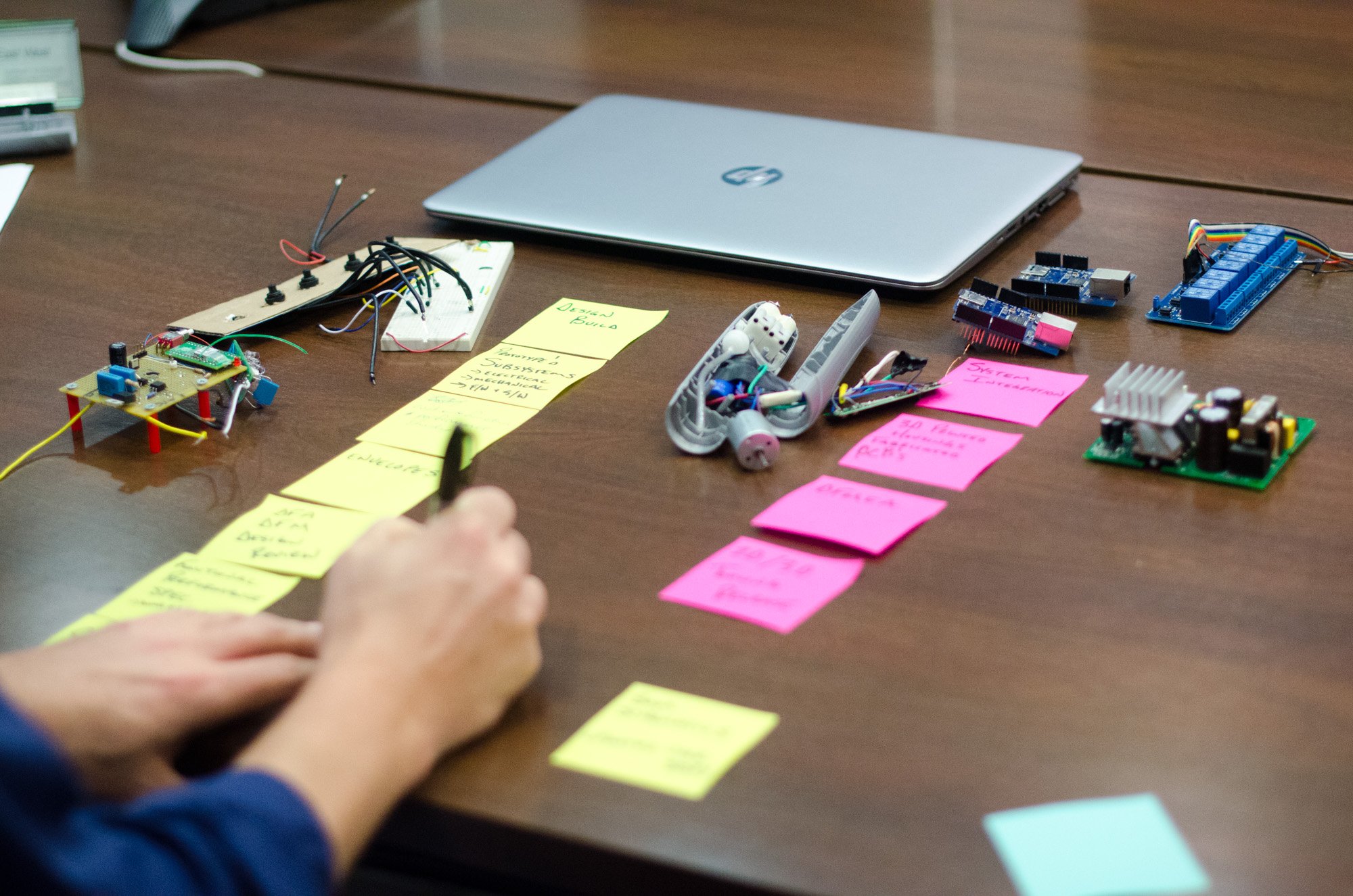When considering the value of engineering support as you go through the process of product development, there’s a great saying to keep in mind:
Experience is a great teacher, especially someone else’s experience.

If you’re a parent you understand this. You tell your children not to touch a hot stove, right? Why? Because you know the hot stove will burn them. Your experience is teaching your children. Now we all know that a lot of folks just have to experience the hot stove for themselves, but I like the idea of just taking some things on faith - learning without the burning, so to speak. What does that have to do with engineering support?
Well, engineers have a lot of experience. They have a great deal of education and probably additional certifications. Then there’s the practical experience of actually working on designs, making adjustments, knowing what will and won’t work with a specific material or process. To me, the combination of education and practical experience is invaluable. I’m inclined to trust that experience.
A couple weeks ago we shared a video about design for manufacturability featuring Jeff Tadin, Senior Product Development Engineer at East West. At the same time, we asked him to talk about the value of engineering support during product development. Give it a look. It’s quick, just two minutes:
Jeff talks about some real benefits of working with a company that provides engineering support — cost savings…risk mitigation…professional engineers focusing on your goals. But let's go into a little more detail on those practical ways engineers support your product development project.
Early Involvement
If you're not sure engineering support makes that much difference to your project consider this: 80 percent of the cost of a product is determined during the design phase.
- Early involvement by engineers can ensure there are no “hidden factories” — areas that cost a customer money that they’re unable to extract at least that much value from the component.
- Cost of change is negligible early in the development process (i.e., at concept phase) versus prohibitive in later stages (i.e., modifying a tool).
- Seasoned engineers can leverage expertise from across different industries, allowing them to broker solutions from one industry/market to another, significantly reducing operational risk by applying tested solutions.
Project Management/Schedule Compression
In today’s time-sensitive culture, the ability to reduce time to market is a significant advantage. Engineers to the rescue!
- Project management – Managing the activity of a technical product requires technical acumen to make sure time, budget and spec are being addressed. Engineers are well suited to deal with these activities.
- Crashing – (engineer-speak for multitasking) Engineers can determine which tasks can have multiple resources assigned to reduce development time.
- Fast-tracking – Engineers can determine which tasks can begin earlier than anticipated, reducing time on critical path without significantly increasing risk.
Design Challenges/DFMA
Other areas where engineers can contribute to making a more high-value, cost-effective design:
- Good Manufacturing Practices (GMP) – All manufacturing processes have guiding principles that ensure the part can be manufactured for the lowest cost, with the highest quality. Having an engineer review your design increases the likelihood that it will be able to be produced to these principles.
- Part Consolidation – Good engineers challenge your design, and look for a better way to put the product together without sacrificing performance. They will look for ways to combine or eliminate components, saving part costs, labor, overhead and opportunities for failure.
- Design Optimization – All manufacturing processes have “levers” – the attributes of the process that most significantly impact the cost and performance of the product. Engineers can help move these levers so that you get the highest value product for the cost
- Computer Analysis – Wouldn’t it be nice to know how a part is going to perform before you build it? There are many computer simulation programs that allow engineers to evaluate components and make recommendations for changes to ensure the part meets all the design requirements and is the easiest to manufacture.
- Design for Automation – Designing a product that can be assembled by hand is not that hard — humans are intuitive and can think. Designing a part so it can be automated is different — it must be designed so that a machine that can only execute commands can interpret how to make the part. Engineers can facilitate making the design “friendly” to automation.
- Material Substitution/Alternatives – Often, companies specify a material because that’s what the previous version was made of, or that’s what a friend told them to make it from. Engineers can evaluate what the performance expectations of the product are and make material recommendations in line with these expectations. This keeps you from leaving money on the table in the form of inappropriate material recommendations.
- New Technologies – Engineers pride themselves on staying abreast of the newest, most relevant technologies. Having an engineer review your product during design allows them to make recommendations on technologies that might provide a competitive advantage, or solve a particular problem or shortcoming to the design.
Based on this list, it's pretty clear that working with a contract manufacturer that has an experienced engineering team can prove invaluable in more ways than just cost savings. The breadth of understanding and expertise they bring to bear on a product in development can make the difference between a good product and an exceptional one.
Read more:




.jpg?width=176&height=56&name=MR_associatedNetwork_logo%20(1).jpg)